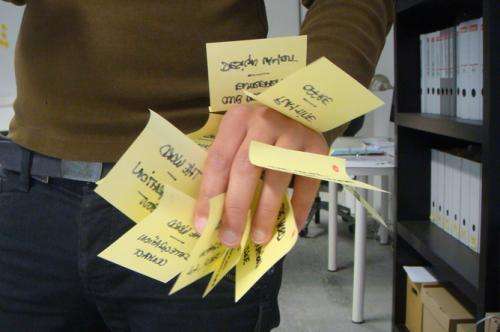People who don't forget can still be tricked with false memories

"Time is the thief of memory," wrote Stephen King in one of his many books. For some people, however, that is not true. They are gifted with what scientists call highly superior autobiographical memory (HSAM), which means they can remember in vivid detail every day of their life going back to childhood. But new research shows that even these special people are susceptible to forming false memories, sometimes more than normal people.
The first study of a person, later identified to be Jill Price, with this special ability was published as recently as 2006. Since then the database of HSAM individuals in the US has grown to about 30 people. It includes people like Bob Petrella, who can recall the date he met every one of his friends and acquaintances. Or Brad Williams, who can remember both what he did on any day and what significant world events occurred.
James McGaugh at the University of California Irvine was the author of the 2006 study, and for the past seven years he has been working to understand what makes HSAM individuals so special. A 2012 study showed, for instance, that HSAM individuals have different brain structures. They posses more white matter in areas linked to autobiographical memory. But because there are so few of them, "We still don't know enough to be able to draw robust conclusions," says Martin Conway, a cognitive psychologist at City University London.
Knowing how HSAM people form memories would be a great leap in our understanding. With graduate student Lawrence Patihis, McGaugh set out to fill that gap. One way to do that would be to test if HSAM individuals are susceptible to false memories. After all, memories are easy to distort. It happens to every one: the young, the old, the intelligent and the dumb. Now, in a study just published in the Proceedings of the National Academy of Sciences, Patihis finds that HSAM individuals too can be tricked to possess false memories.
Not so perfect
For the study, Patihis recruited 20 out of the 30 known HSAM individuals in the US. They were matched, by sex and age, with 38 people with normal memory. All of the participants were then given three tests.
In the first test, each participant was shown a series of words that were all supposed to be connected to a "lure word". So if the lure word was "lamp" then they will be shown words like light, table, shade and stand, but not the word lamp. After they have seen the list, they are asked if they saw the word lamp. People with normal memories got the answer wrong seven out of ten times. HSAM individuals too got it wrong just as much.
The second test was more elaborate. It showed a slideshow of photos depicting a crime. After 40 minutes, they were then shown words describing the crime with misinformation sprinkled in them. Then 20 minutes later they were tested to see how many people believed the misinformation to be true. This time HSAM individuals did worse than normal people. They were 73% more prone to false memories. "Maybe HSAM individuals form richer memories through absorption of more information and that is why they are also more susceptible to false ones too," says Patihis.
Perhaps it is easy to manipulate recent memories. So in the third test Patihis looked to test long-term memory. All participants were asked to recall the September 11 terrorist attacks. They were then given irrelevant facts about that event, one of which was not true (someone captured the footage of United 93 in Pennsylvania). After 15 minutes, all participants were then asked whether they had see such a footage. Like the first test, normal people and HSAM individuals performed almost equally badly on this test.
"This shows that maybe people with superior memories form them just like normal people. Thus, in the process, they are also prone to making the same mistakes," says Patihis. Equally, they may use a different process of forming superior memories, but one that has same problems as that of the normal process.
There is still contention among experts whether HSAM individuals are "special". K. Anders Ericsson of Florida State University says, "Our work has pretty much concluded that differences in memory don't seem to be the result of innate differences, but more the kinds of skills that are developed." To which McGaugh says, "You'd have to assume that every day they rehearse it… The probability of these explanations dwindles as you look at the evidence."
Price had admitted that remembering everything meant bad memories were always around to trouble her. It led researchers to believe that such superior memory may come at a cognitive cost of lost abilities, or less happier lives. But research since has shown that not to be the case. HSAM individuals tend to have similar lives to normal people. With the latest study, McGaugh has shown one more task where HSAM individuals are normal. They too may be made to believe that as a kid they were lost in a shopping mall, even if that isn't true.
More information: "False memories in highly superior autobiographical memory individuals." Lawrence Patihisa, Steven J. Frendaa, Aurora K. R. LePort, Nicole Petersen, Rebecca M. Nichols, Craig E. L. Stark, James L. McGaugh, and Elizabeth F. Loftus. PNAS November 18, 2013. DOI: 10.1073/pnas.1314373110
This story is published courtesy of The Conversation (under Creative Commons-Attribution/No derivatives).
![]()


















